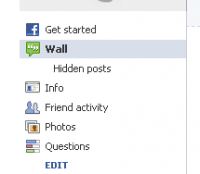Back in 2008, as part of my training sessions, I used to demonstrate “hot” up and coming technologies. The QR code never failed to disappoint; I would hold up my mobile phone and hover over an inanimate object displaying a tiny pixelated symbol (City AM was prime demo material) and a browser page would magically pop up.
The N95 was THE hot digital phone of the day and came pre-installed with a QR Reader and the technology seemed useful and fun with the potential to become mass market (with Nokia behind it) fairly quickly – even Marks & Spencers was putting QR codes on its “Food-to-go” juice bottles to test drive the technology.
Now, show of hands today if you know what a QR code is? Exactly.
What is a QR code?
QR stands for Quick Response Code and is a 2-dimensional image, similar to a barcode, which can be decoded at high-speed by a reader – usually a mobile phone – taking you to a webpage or other content.
QR codes are great because they can connect real world with online. But, for reasons mainly unknown, QR Codes never really took off in Europe, with theories from lack of awareness, lack of pre-installed software to simply people don’t care.
QR Codes: The Opportunity
QR Codes are widespread in Japan and have been for many years. There they are used on everything from posters, packaging, tickets, and even vending machines.
I suspect that previously the only vision many brands could see for the codes was simply linking people to a corporate website or product page and most people didn’t even know they could get a QR reader on their smartphone.
Now with the land grab for owning online properties the humble QR code could take on greater importance. Brands are starting to realise the value in acquiring customers into online communities where they can create ongoing engagements – enter Facebook and Twitter- and might realise the value in QR codes to help lead them there.
Is interest in QR codes renewing?
![QR code QR Are QR codes [finally] going mainstream?](/wp-content/uploads/2011/02/QR.jpg) Earlier this year I visited a small(ish) winery in NZ and was surprised to see QR codes alongside the tasting notes. The manager told me they were “a great way to let people take away notes on the wine they’d tasted and maybe order more wine later via their website.” I was then encouraged to get out my iPhone and give it a try. I don’t have an iPhone but you get the idea, consumer hardware might finally be catching up to the software which has been around for a while.
Earlier this year I visited a small(ish) winery in NZ and was surprised to see QR codes alongside the tasting notes. The manager told me they were “a great way to let people take away notes on the wine they’d tasted and maybe order more wine later via their website.” I was then encouraged to get out my iPhone and give it a try. I don’t have an iPhone but you get the idea, consumer hardware might finally be catching up to the software which has been around for a while.
According to Vittorio Colao, CEO of Vodafone, the UK has the highest penetration of smartphones in the world. In addition, research shows that over 30% of smartphone users seem very happy to scan a QR code if they can get additional useful information to make a buying decision.
Google is using QR codes as an integral part of their Favourite Places services and Sky recently launched Sky Atlantic with a series of print ads featuring QR codes in publications like the Evening Standard. Readers who scanned the code with their phones were taken to a listings page with a video preview of the show (in this case Boardwalk Empire)
With brands like Google, Sky, Waitrose, Debenhams, Wilkinson Sword, and Metro Newspapers using QR codes is it only a matter of time before the British public starts asking “What are those symbols?” and whipping out their handsets to download a reader? I hope so.
What do you think, are QR codes useful or gimmicky?
Some tips on using QR codes:
- Link to useful content: linking to your homepage is not ideal, you should aim to link to specific or even exclusive content related to where the code was seen
- Educate: Feature QR codes with instructions alongside what they are and even how to download an app to read them
- Be smart:One QR campaign in New York was criticised for featuring codes in subway cars…where there was no internet access
Related articles
- Scanlife Enables QR Code Reading on Any Camera Phone, Confirming QR’s Future (fastcompany.com)
- Decode QR Tags Sans App with Scanbuy (appscout.com)
- QR Code Update (my-creativeteam.com)





Pingback: Tweets that mention Are QR codes [finally] going mainstream? | Advice, Tools, Resources | Tempero -- Topsy.com
Pingback: Posts from elsewhere | Grapevine Consulting